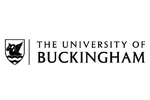

the United Kingdom
University of Buckingham| The award | How you will study | Study duration | Course start | Domestic course fees | International course fees |
|---|---|---|---|---|---|
| PG Cert | Full-time | 1 year | April, September | - | - |
The new Postgraduate Certificate programme in Money, Banking and Central Banking focuses on the changes in the banking and financial markets during and since the Global Financial Crisis as well as the changes made by major central banks in the running of their monetary policies since then. Particular emphasis will be given to the policy responses given to Covid-19 crisis by governments and central banks and assessing their effects over the medium to the long term.
Banks and central banks play a pivotal role in ensuring that modern monetary economies function soundly. The 2008-09 Global Financial Crisis was a powerful reminder of how important it is to understand their functioning and operations, and the relationship between the quantity of money and the overall economy. The study of these institutions will be essential to assess the impact of the monetary and fiscal policies taken by leading world economies since March 2020.
Unlike any other programme in the UK, ours emphasises the importance of high quality monetary and banking analysis, allowing our students to assess which policies are compatible with stable economic growth and long term financial stability.
Our students will leave with expert knowledge of monetary economics, monetary policy, risk assessment and how financial institutions operate. They will be equipped with the specialised knowledge and skills required for a career in central banking as well as monetary analysis expertise suitable for pursuing a career in consultancy businesses, research departments and specialised media.
The collaboration with the Institute of International Monetary Research will provide more opportunities to engage in academic and research seminars where students will learn from top academics in monetary economics. Students on the programme will be able to benefit from the accreditation on risk management provided by PRMIA, the Professional Risk Managers' International Association.
Course Structure
We offer two entry points, one in September and one in January.
The programme consists of the following modules:
A full timetable for the course is available here
Professional accreditation in risk management
Students will have the option to study for an accreditation in financial risk management with the Professional Risk Managers' International Association (PRMIA), ideal for those interested in entering the risk management industry and banking.
The programme covers fundamental concepts of the risk management profession and has become a well-known benchmark in this market both in the UK and in the rest of the world.
The teaching staff of our master's programme will offer extra academic support to the students who opt to take the exam. The PRM certificate course is covered. The exam fee, however, needs
Contact University of Buckingham to find course entry requirements.
Below are some suggested courses at other providers that you may also be interested in:
If you do not meet the entry requirements for this course then consider one of these postgraduate preparation courses from another institution:
Graduate Diploma of Engineering (Electrical Systems)
Engineering Institute of Technology
Find out moreThere are 156 other courses listed from University of Buckingham. A selection of these are displayed below:
Join the Сưłć´«Ă˝ email list and never miss a chance to turn your study abroad dreams into reality!

Find out more about studying in the United Kingdom